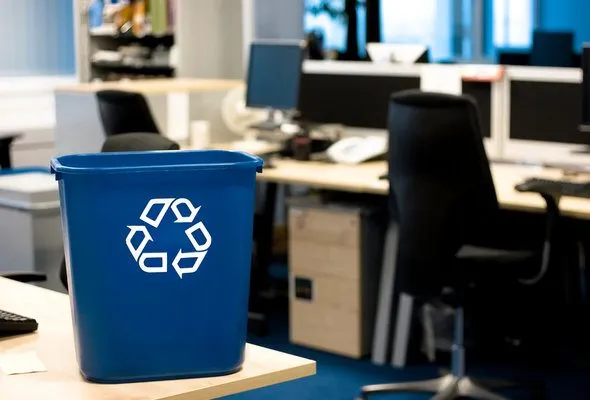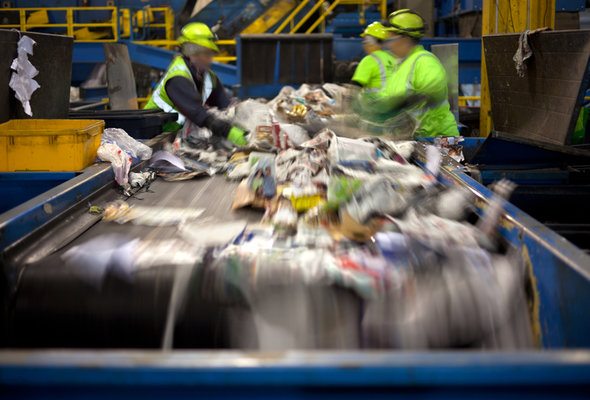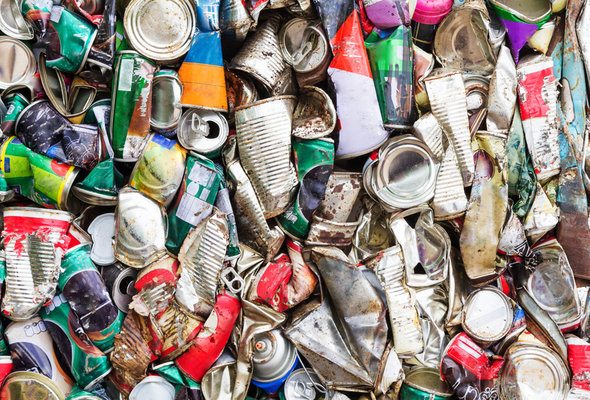Recycling is a common practice in homes, offices, and public spaces, but its overall impact and efficiency remain debated. In the U.S., the recycling rate has hovered around 34% for years, falling behind the higher rates achieved in other developed nations. While recycling offers environmental and economic benefits, it also presents challenges that can limit its effectiveness. To better understand this complex issue, let’s explore the key advantages and drawbacks of recycling.
For help with your individual finances, consider talking to a financial advisor.
Pro #1: There’s an Environmental Benefit
Okay, this one is obvious. When you recycle materials you divert them from the landfills or incinerators where trash usually goes. Whether burned in incinerators or left to rot in landfills, materials in our trash can leach chemicals into the air, ground or water. Recycling reduces the waste that goes to polluting landfills and incinerators and reduces the need to devote land and resources to traditional waste disposal methods.
Pro #2: Recycling Creates Jobs
Recycling is a source of jobs in a community. Recycling plants, the manufacture of recycled products and the creation of recycling-related materials like recycling bins all contribute to job growth in the economy. Recycling can be a source of good, middle-class jobs for people without a lot of education under their belt. Along with renewable energy, recycling is a source of green jobs, which some say are critical to a strong 21st-century economy.
Pro #3: Recycling Raises Overall Environmental Consciousness
Recycling can be a gateway to other forms of environmental activism. A homeowner might start out by recycling and graduate to composting or installing solar panels. Recycling, particularly in cities that offer curbside pick-up of recyclables, is an easy way to do something good for the environment and it can lead to other green lifestyle changes, too.
Related Article: States Leading the Charge on Renewable Energy
Pro #4: Recycling Reduces the Energy Used to Manufacture Goods

Say a company wants to make a garment. To generate the textile from scratch would mean harvesting the cotton or linen crop, or manufacturing the synthetic fabric. But if the same company uses recycled textiles it can cut out that first step of the manufacturing process, saving energy as a result. To the extent that recycling reduces the need for growing, mining or extracting raw materials it has significant environmental benefits.
Con #1: Recycling Takes Energy
One major drawback of recycling is that it requires a significant amount of energy. While recycling helps reduce waste and conserve natural resources, the process itself—collecting, transporting, sorting, and reprocessing materials—demands energy, often derived from fossil fuels. For instance, melting down glass or aluminum to create new products still consumes a substantial amount of electricity and industrial resources.
Additionally, recycling facilities rely on heavy machinery, which can contribute to carbon emissions and the overall environmental impact. In some cases, the energy required for recycling can outweigh the benefits, especially when dealing with materials that are difficult to process or when contamination reduces efficiency.
Con #2: Recycling Can Lead to Pollution
Some say the environmental benefits of recycling are overrated, not just because it takes energy but because it can lead to pollution. This is said of electronics recycling in particular. Many electronics slated for recycling are shipped overseas to less-developed countries, where they are sorted by hand. During the sorting process, metals and other chemicals may leach into the land and water where the recycling is taking place. This takes a toll on the environment and its inhabitants.
Check out our retirement calculator.
Con #3: Recycling Is Costly
Some critics of recycling say the costs outweigh the benefits and/or exceed community resources. Some towns and cities say they can’t afford to operate recycling programs. In the U.S., landfill space is generally cheaply available, which means that the cost of recycling can exceed the cost of landfill waste disposal in many places.
Of course, some materials cost more to recycle than others, which is why some city governments choose not to recycle glass or plastic. The costs of recycling can vary not just based on the materials recycled but on the administration of the recycling program and on-demand for recycled materials.
Con #4: Recycling Isn’t a Slam Dunk

Some critics of recycling say that recycling gives people the sense that they’re doing all they need to do on behalf of the environment, when in fact recycling alone isn’t enough to, say, fight climate change or eliminate pollution. These critics worry that there will be too many people who shop a lot, eat a lot of animal products and take long-haul flights but think that recycling offsets the environmental impact of their other choices.
Bottom Line
Most people agree that recycling has significant benefits, even if it isn’t a perfect solution to our environmental problems. Though it can be a bit of an inconvenience, recycling has empowered households and businesses to feel like they’re doing something to make their community – and their country – a more eco-friendly place.
Tips for Being Socially Responsible
- And you don’t have to stop at recycling either. With the help of a financial advisor, you can also make a difference by investing your money in a socially responsible manner. Finding a financial advisor doesn’t have to be hard. SmartAsset’s free tool matches you with vetted financial advisors who serve your area, and you can have a free introductory call with your advisor matches to decide which one you feel is right for you. If you’re ready to find an advisor who can help you achieve your financial goals, get started now.
- If you choose to invest on your own, you can look into socially responsible investment funds as a good option to help keep your finances as focused as your recycling efforts.
Photo credit: ©iStock.com/jat306, ©iStock.com/ms_seal, ©iStock.com/hroe
